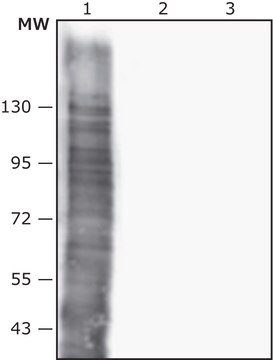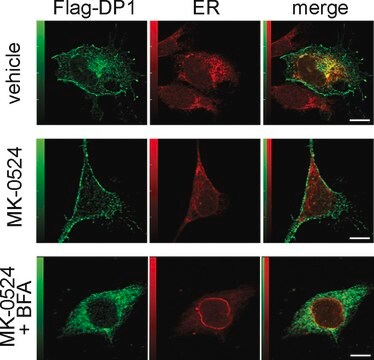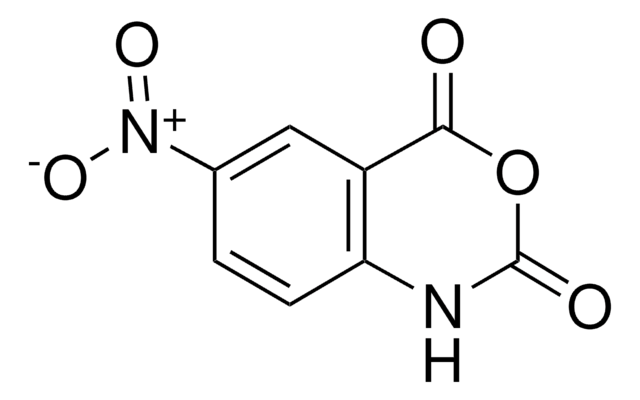ABE2598M
Anti-CLOCK
from guinea pig
Synonym(s):
mCLOCK, CLOCK, Circadian locomoter output cycles protein kaput
About This Item
ICC
immunocytochemistry: suitable
Recommended Products
biological source
guinea pig
Quality Level
antibody form
affinity isolated antibody
antibody product type
primary antibodies
clone
polyclonal
species reactivity
mouse, human
packaging
antibody small pack of 25 μL
technique(s)
ChIP: suitable (ChIP-seq)
immunocytochemistry: suitable
isotype
IgG
NCBI accession no.
UniProt accession no.
target post-translational modification
unmodified
Gene Information
mouse ... Clock(12753)
General description
Specificity
Immunogen
Application
Chromatin Immunoprecipitation (ChIP) Analysis: A representative lot detected CLOCK in beta-TC6 cells (Perelis, M., et. al. (2015). Science. 350(6261):aac4250).
ChIP-seq Analysis: A representative lot detected CLOCK in beta-TC6 cells (Perelis, M., et. al. (2015). Science. 350(6261):aac4250).
Epigenetics & Nuclear Function
Quality
Immunocytochemistry Analysis: A 1:100 dilution of this antibody detected CLOCK in HeLa cells.
Target description
Physical form
Storage and Stability
Other Notes
Disclaimer
Not finding the right product?
Try our Product Selector Tool.
Storage Class
12 - Non Combustible Liquids
wgk_germany
WGK 2
flash_point_f
Not applicable
flash_point_c
Not applicable
Certificates of Analysis (COA)
Search for Certificates of Analysis (COA) by entering the products Lot/Batch Number. Lot and Batch Numbers can be found on a product’s label following the words ‘Lot’ or ‘Batch’.
Already Own This Product?
Find documentation for the products that you have recently purchased in the Document Library.
Our team of scientists has experience in all areas of research including Life Science, Material Science, Chemical Synthesis, Chromatography, Analytical and many others.
Contact Technical Service







